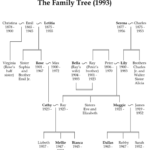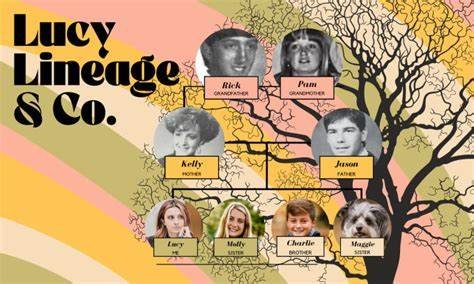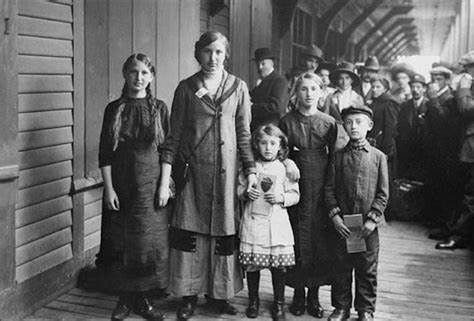Your family name is much more than just a label. It is a window into your past, revealing important details about where your ancestors came from, what they did, and how they lived. By exploring your family name, you can uncover hidden stories of your ancestry and gain insights into your heritage. In this post, we’ll explain how family names can reveal the origins of your ancestry and why they’re important.

1. Surnames Can Reflect Occupations
One of the most common ways family names reveal your ancestry origins is through occupations. Many surnames were originally derived from the job or profession of an ancestor. This means that your family name might give you clues about what your ancestors did for a living and where they may have lived during their time.
For example:
- Smith: This surname often refers to blacksmiths or metal workers, indicating that your ancestors worked with metal in some way.
- Miller: If your surname is Miller, it likely comes from an ancestor who worked in a mill, grinding grain into flour.
- Baker: This surname may have been passed down from a baker or someone involved in the production of bread and pastries.
These occupational surnames can give you a glimpse into your family’s way of life and the role they played in their communities.
2. Geographic Origins in Surnames
Family names can also reveal the geographic origins of your ancestors. Many surnames are tied to locations, whether it’s a specific town, region, or natural feature like a river or mountain. Geographic surnames provide clues about where your ancestors lived or originated from.
For example:
- London: If your surname is London, it could indicate that your ancestors were from London, England.
- Paris: A surname like Paris could suggest that your family came from the French capital or had some connection to it.
- Hill: This surname might refer to someone who lived near a hill or came from a place named “Hill.”
Understanding the geographic roots of your surname can help you trace your family’s migration patterns and learn more about their cultural background.
3. Descriptive and Physical Traits
Some family names come from physical characteristics or traits, offering another clue about your ancestry. These names were often used as nicknames, based on a person’s appearance, personality, or unique features. Descriptive surnames give insight into what your ancestors might have looked like or how they were perceived by others.
For example:
- Brown: This surname could have been given to someone with brown hair or a darker complexion.
- Short: If your surname is Short, it might indicate that your ancestor was physically shorter in stature.
- Strong: A surname like Strong could suggest that your ancestor was known for their physical strength.
These physical and descriptive traits not only tell you something about your ancestors but can also give you a sense of how they were viewed in their community.
4. Patronymic and Matronymic Origins
In many cultures, family names are derived from the first name of an ancestor, usually the father. These are called patronymic surnames. In some cases, matronymic surnames are used, which come from the mother’s first name. These types of surnames can help you trace your paternal or maternal lineage and reveal information about your ancestors’ names and family structure.
For example:
- Johnson: This surname is a patronymic surname, meaning “son of John.” It indicates that your ancestor’s father was named John.
- MacDonald: A common Scottish surname, MacDonald means “son of Donald.” The “Mac” prefix indicates a patronymic origin.
- O’Reilly: An Irish surname meaning “descendant of Reilly,” showing a family’s link to a particular ancestor.
These surnames help you track your paternal and maternal ancestry and link your family to specific historical figures.
5. Cultural and Ethnic Heritage
Family names can also reveal important information about your cultural or ethnic heritage. Certain surnames are tied to specific ethnic groups, regions, or historical events. By studying the meanings and origins of these names, you can learn about your family’s cultural background and where they might have originated.
For example:
- Nguyen: This is one of the most common surnames in Vietnam and can indicate Vietnamese ancestry.
- Garcia: A common surname in Spain, it suggests that your ancestors were likely from the Iberian Peninsula.
- Kovács: A surname of Hungarian origin, it can point to a family from Hungary or surrounding regions.
These cultural connections help you understand the diversity of your family background and trace your roots to specific ethnic communities.
6. Changes and Evolution of Surnames Over Time
It’s important to note that family names often change over time. Historical events, such as wars, migrations, or cultural shifts, can cause family names to evolve or be altered. Spelling changes, shortened versions, or translations from one language to another are common.
For example:
- The surname Schmidt in Germany may have been changed to Smith in English-speaking countries.
- MacGregor, a Scottish surname, may have been shortened to Gregor after migration to other regions.
Understanding these variations can help you track your ancestors across different historical periods and locations.
7. Tracing Ancestry Through Family Names
By studying your family name and its history, you can trace your ancestry and gain a deeper understanding of where your family came from. The origin of your surname can provide clues about your ancestors’ occupations, geographical locations, physical traits, and cultural heritage. With resources like genealogy websites, historical records, and DNA testing, you can learn more about your roots and connect with your heritage in meaningful ways.
Conclusion
Family names are powerful tools for uncovering your ancestry origins. They carry stories about where your ancestors lived, what they did, and who they were. By researching the meanings and origins of your family name, you can unlock a wealth of information about your heritage. Whether your surname reflects a profession, a geographical origin, or a cultural tradition, it offers valuable insight into the past, helping you understand your family’s place in history.











